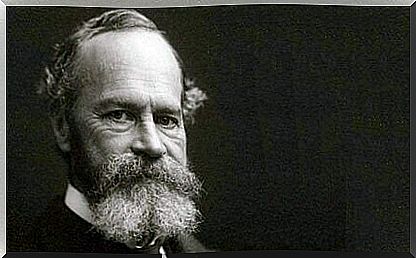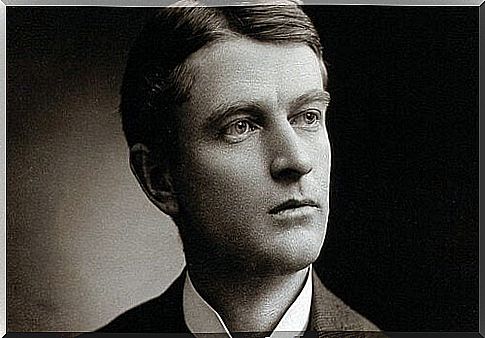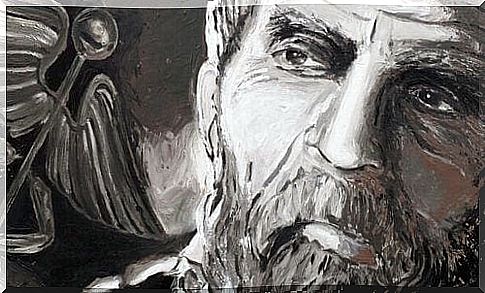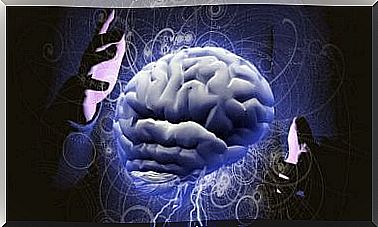William James: Pioneer Of Psychological Sciences

Philosopher, thinker, doctor, physiologist, metaphysician…. William James is considered to be the father of modern psychology, as well as a figure of great stature and interest in almost all disciplines of knowledge.
William James was more than a remarkable late 19th century philosopher. Until his arrival, American society associated psychology with simple clairvoyance or mental reading practices. Thanks to him and to the experimental psychology laboratory that he founded at Harvard, we saw this field establish itself as a scientific discipline. James then became one of the great pioneers in this field.
To this day, many still consider James to be America’s foremost philosopher and also the father of modern psychology. His numerous works cover multiple disciplines. Ranging from epistemology and education, including metaphysics, religion, mysticism, anatomy and, of course, psychology.
The way in which William James distinguished himself and became one of the leaders in this field of knowledge is without doubt something as unique as it is significant. He spent much of his youth afflicted with multiple aches and pains, strange illnesses, and physical limitations such as partial deafness. All these conditions and other discomforts even led him to consider suicide.
In this state of apparent melancholy, he came to the conclusion that what grieved him was nothing more than a disease of the mind and also of the soul. That is why he wanted to do research in other fields to find answers in knowledge and disciplines which, in the long term, gave rise to great revelations: philosophy and psychology.
“The deepest principle of human nature is the need to be appreciated.”
-William James-

William James: an eclectic upbringing and a personal aspiration
James was born in 1842 into a well-to-do family characterized by artistic, scientific and intellectual interest. His parents moved among the cultural elites of the time. So they decided to give their children the most eclectic and cosmopolitan education possible.
He spent much of his childhood traveling the world with his family, initially feeling an artistic fondness for painting. Later, it was science that caught his attention. So in 1861 he began his medical studies at Harvard University.
By this time, her brother, Henry James, was already starting to make a name for himself in the literary realm while his sister Alice was doing so in the realm of history. At one point, William decided to postpone his medical studies and begin a scientific expedition through the Amazon with naturalist Louis Agassiz.
This trip lasted almost two years and gave him time to reflect. Medicine would not be his only field of work and study. His wit, his innate curiosity for the brain and human behavior demanded much more of him. He wanted to deepen other areas of knowledge …
William James and the scientific study of the human mind
William James spent his entire academic career at Harvard. He first taught physiology, then anatomy, then psychology and finally philosophy. It should be noted that his most important works will be published in 1890, just after the opening of the university’s first experimental psychology laboratory.
This work gave rise to the work entitled The Principles of Psychology (a book of more than one thousand hundred pages) where it addresses the main areas of this science, such as memory, imagination, reasoning, emotions, habits and self-awareness.
However, he approaches these topics from a philosophical point of view.
This rather pragmatic view of psychology as a science made William James one of the forerunners of functionalism. Such an approach would later lead to the emergence of behaviorism.
Conscience according to William James
William James wanted to deepen and delimit the study of consciousness through experimental physiology. He did so with other experts like Henry Pickering Bowditch and James Jackson Putnam. All with a very concrete goal: to try to locate it in a region of the brain.
After a series of tests and analyzes, he concludes that consciousness was in fact a process. It is the notion that we have of ourselves. A huge sum of areas and everything we have experienced and felt, our past and also our future potential.
For William James, consciousness was defined as a collection of images, thoughts and sensations. These can be fleeting or permanent for a while in our mind.
Psychology could therefore analyze this process. That is to say, the flow of thoughts in order to be able to thus delimit this abstract idea which configures the “me”.

William James and the study of emotions
It was almost inevitable that at some point in his career James would start to take an interest in emotions.
He did it with Carl Lange, a Danish physiologist. Together, they articulated the famous James-Lange theory of emotion. According to this theory, emotion is the mind’s perception of physiological conditions arising from a given stimulus.
For example, if I see a snake next to me, I am not afraid to think that it can attack me. It is my body and my consciousness that generate a certain physiological response. This response is the one that is at the origin of the emotion. According to this theory, the flight and the physical reaction would be the ones that trigger this feeling of fear and anguish.
The legacy of William James: a philosopher and a pioneer in psychology
William James died of heart failure at his home in New Hampshire on August 26, 1910. He was 68 years old and left behind an immense, varied and fascinating legacy for psychology.
He set up the philosophical school of pragmatism and functional psychology. In addition, he establishes empiricism in his scientific studies. Finally, he was one of the first psychologists to deepen the study and understanding of the brain.
It is thanks to him that the first pillars of these psychological disciplines, which are still progressing today, were raised. And to those personalities as eager and passionate about human knowledge as William James himself was.










